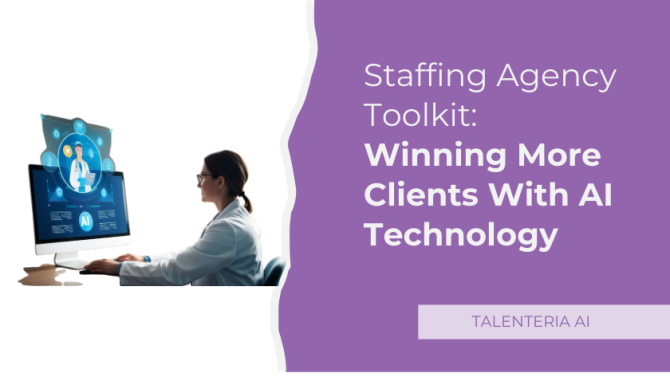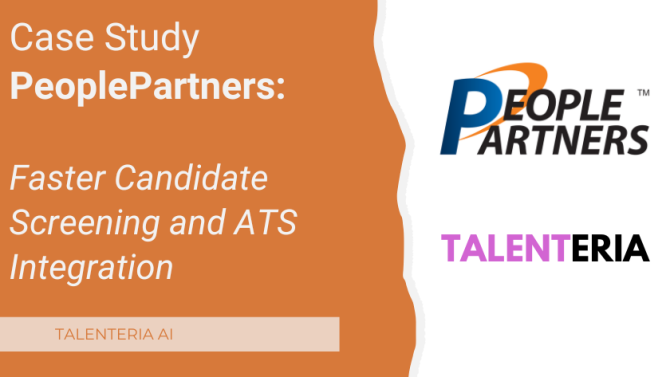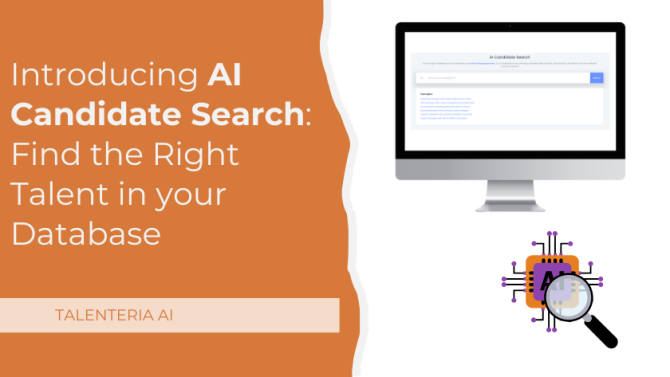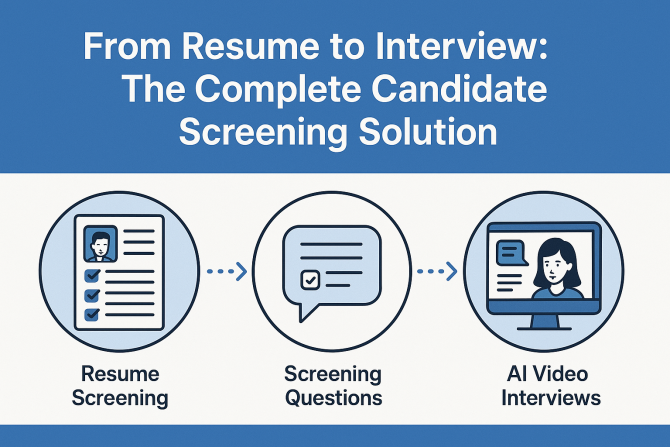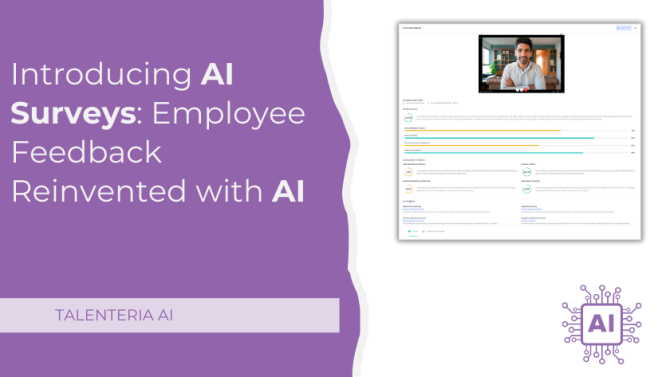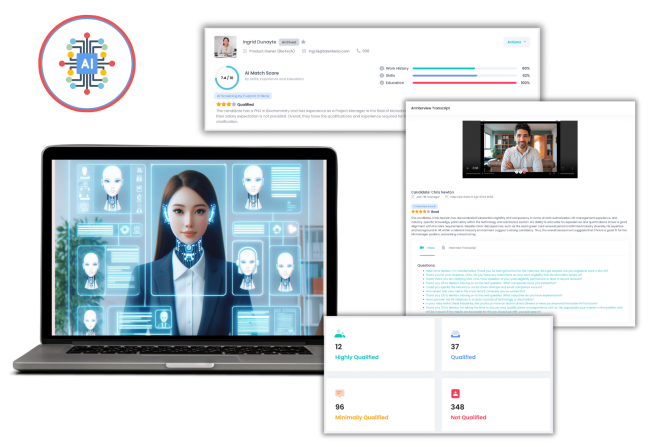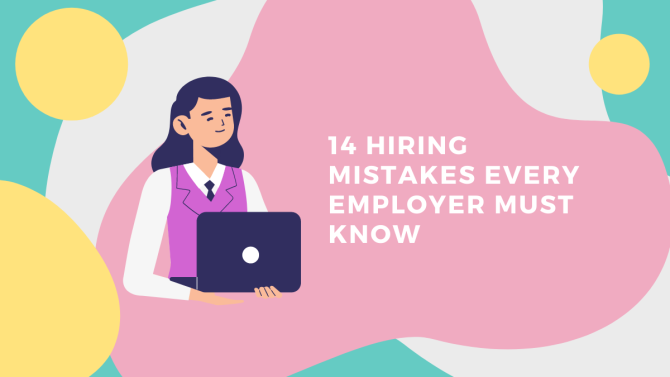
The recruitment process is a crucial organizational procedure; it’s necessary to acquire more talented and skillful people in your company. However, many companies are making hiring mistakes - which can affect all operations.
In this article, we'll provide you a list of the most common hiring mistakes; study them carefully and avoid repeating them for a better hiring procedure!
Most Common Hiring Mistakes
1. Creating an Inadequate Job Description
Let the candidates know exactly what you're looking for. List the needed qualifications, and be frank about the required and expected responsibilities. Be wary that job descriptions are not what the interviewer interprets them to be; these descriptions should be grounded on reality and not just how the interviewer "thinks" what they are.
Unsuitable job descriptions lead to wrong sourcing. It can cause more problems once they start working and is unfair to the candidates. For example, hiring a newly graduated chef whose talents are focused on French cuisine when your restaurant specializes in Italian food - this could end in disaster!
Be transparent. A great job description includes:
- A correct job title
- An attractive yet honest overview of the position
- Realistic descriptions - Avoid superlatives such as "Looking for the greatest chef…" Some candidates, especially those who are in the minority group, will be discouraged from applying. You might miss a potentially great talent.
- Responsibilities that target company growth - Don't just list mundane daily routines. Fascinate candidates with the opportunity to grow with other people along with the company's success.
- The company's culture
2. Setting an Ineffective Advertisement
A job advertisement must have high-quality content and a professional appearance to draw candidates’ attention. Invest in advertising. Post a catchy advertisement with an accurate job profile and description, and make it appealing in a way that's appropriate for the job position you're offering.
Don't put too much information about the company in the ad; instead, focus on the role. You can add a website link where the candidates can go to learn more about the company.
Moreover, avoid posting in the same places. A narrow net often leads to the same old candidates applying again and only a few new ones. Advertising to a larger audience will help lure out a variety of fresh candidates with different ranges of skills and experiences.
Instead of solely relying on your company's main website, you can use other sites to drive traffic. Don't overlook using popular sites such as Facebook, Twitter, and others. The large pool of users on these platforms will give your ad more attention. You can also post on magazines and community groups so more people can see it.
3. Relying on Your “Gut Feeling”
Don't set substandard criteria when hiring a candidate. Your criteria can’t be based on your gut feeling that they “fit right.” Just because they seem to fit in your team doesn't mean they're right for the position. You might think that having a team with the same skills and way of thinking is appropriate, but it’s not. It's best to form a team with different skills and outlooks to accommodate growth.
4. Not Properly Preparing for an Interview
Pay attention to the resumes of the shortlisted candidates. Don't focus on asking standard and common interview questions. You can ask about their strengths and weaknesses, and for sure, they’ll have a stock of answers ready and well-rehearsed.
Instead, ask questions related to their background, work behavior, and job requirements. For example, if there are some questionable details on their resumes, you can clarify them. Assess their qualifications, opinions, and critical thinking skills by preparing appropriate questions for the interview.
You can ask questions like:
- What can you share about yourself that's not on your resume?
- Have you experienced a difficult situation at your previous jobs? How did you overcome it?
- Describe how you worked with someone who has a different work style and personality compared to yours.
- How do you see your career in the long run?
- What's your proudest career accomplishment?
Form the right panel of relevant interviewers to do this process. Don't let someone ask questions about a role they don't completely understand. Additionally, ensure that the interviewer has the right interviewing skills; train people who will handle this interview process to get good results. A lack of these skills can put even the best candidates off!
5. Ignoring the Candidate’s Personality
Skills and experience are important when selecting a great candidate for an open position. However, you should also consider their character. It’s an essential step in knowing how well they’ll fit with the company culture and can indicate how long they’ll stay with the team.
You can give candidates a personality test to determine how well their character blends with the company and even get to know them outside of work demands. You can also ask about their daily routines.
6. Not Checking Background and References Appropriately
Never assume that everything on a candidate's resume is true. Perform a background check on all the claims included: achievements, educational background, career history, and qualifications. This is to protect your team and the company from dishonest potential employees.
For example, let’s say a candidate presented himself as a top-ranking graduate from a prestigious university. However, in reality, they didn’t even graduate with honors. Even if it’s just an attempt to be a “more desirable” candidate, it’s still fraudulent.
There's no way you can know these facts without checking references. You can't trust someone who lies on their resume, especially because your employees will handle confidential company information.
Ask for feedback from their previous employers to gain helpful insights into their past work performance and behavior as well. You can use their comments to assess if the candidate will be good for the company.
7. Excessively Dependending on Consultants
There are organizations and companies that rely on consultants to do the whole hiring affair. Some even entirely exclude their HR department.
What these companies don’t realize is that it’s actually a detrimental practice. This is because most consultants are busy with other companies too. Using consultants can mean that you won't get enough priority and attention, which may slow down the process.
It's essential to look for alternatives like recruitment agencies or platforms to avoid more hiring mistakes resulting from divided attention. You can also implement a referral scheme to motivate and encourage your existing employees to refer candidates they think fits the company.
8. Hunting for the “Perfect Candidate”
Don't focus on the idea of a perfect candidate: perfect job skills, leadership capabilities, interpersonal skills, and others. There is no “perfect candidate” and will just lead to a terrible time-to-hire.
While searching for the non-existent perfect candidate, you will overlook suitable ones. By setting your standards too high, you miss out on people who are appropriate for the role. If you keep doing this, you're not only losing good candidates - you're also wasting time and productivity.
Assess and understand the difference between what you need and what you want for the role. Go for candidates that show great potential instead of looking for the “perfect” ones.
9. Disconnecting With Prospective Employees
Offering your chosen candidate the job isn’t the end of the hiring process. Nothing is certain until the prospective employee accepts your offer. Take note that the time between the rollout of the offer and the candidate’s onboarding is a crucial period.
Enthusiastic candidates looking for a job almost always apply to many companies for a greater chance to get the position they want. The candidate can still receive offers from other companies, and there’s no assurance that he will turn these down in favor of your company. This is why it’s crucial to maintain a connection with the prospective employee. The team needs to connect with the prospect until the candidate accepts the offer and decides to come on board.
10. Talking Too Much
Besides reviewing the questions, practice being quiet during the interview process. When you have the shortlisted candidates for an interview, you don’t want them to just sit and listen to the interviewer. Some interviewers talk so much that they forget to ask the right questions and interpret the candidates’ answers.
To gather the information you need from the candidate, avoid asking yes or no questions. They're not entirely enlightening and don't answer the critical questions that will help you assess if a candidate suitable for the job. Instead, ask open-ended questions relating to their skills and experiences. These questions require thoughtful and knowledgeable answers that will let you have an insight into the interviewee’s background.
It also lets them talk about themselves and reveal who they are. Don't mind the awkward silence; let candidates know they're allowed a moment to think about their answers. Most of the time, candidates will fill this silence, and you'll notice that they're giving more information than you expected.
The primary role of an interviewer is to ask questions that need detailed answers. Usually, interviewers talk less than 25% of the entire time, and at least 75% goes to the candidates.
11. Insufficiently Assessing Requirements
When the recruitment team receives a hiring order, it must evaluate the need for recruitment first. This is often overlooked by many organizations, even if it’s one of the primary functions of the HR department.
When there's a lack of proper hiring assessment, the company will end up with more people than needed. One reason may be because the manager required more people in case some of them leave after a short period of time.
This is highly inefficient and results in a wasted workforce and additional costs. Consequently, because there's excessive staffing, companies tend to ask these employees to leave, negatively affecting the HR department and the company's image.
A crucial role of HR is to assess and evaluate what the company needs correctly. With evaluation, the team can devise strategies and solutions for the recruitment process and avoid hiring mistakes.
12. Ghosting Candidates
Suddenly cutting off communication from candidates is an overlooked hiring mistake. Leaving unfinished conversations after updating them about their application status is a terrible practice. Properly ending the discussion with the candidates will show that your company cares about them, even if they’re just potential employees. Furthermore, following up with them allows you to maintain a good rapport that’s essential in building up your employment brand.
Effective communication leads to a good experience for the candidates even if they’re not hired. Candidates who had bad encounters with your company may share it offline and online where their friends and other potential candidates can see it. Furthermore, these individuals can also be your current and future clients.
13. Holding On to Bad Employees
Employees who don’t perform well at work, are hard to discipline, or have a negative attitude will affect your team. Your employees reflect your company - making a bad hire and keeping them on board is a disservice. Don’t feel guilty about firing underqualified and toxic employees. In doing so, you’ll also give them the opportunity to find another job they may excel in.
Going through the whole recruitment and hiring process is a lot of work. But it’s critical in picking the right candidate.
14. Avoiding Technology
Keep in mind that your most important asset is your employees. Recruit and sustain your team of talents by keeping up with technology. It’s a critical investment for your company because using high-quality and appropriate technology in the workplace will significantly help improve your employees' work performance. Brilliant computer software can also help enhance your employees’ skills.
Recruitment and hiring are also easier with technology. Your company’s manhours can be used in more important tasks than going through hundreds of resumes and organizing thousands of emails.
Add to Your To-Do List: Use a Great Platform to Find the Right Candidates
There are many unforeseen and overlooked hiring mistakes you need to learn to avoid doing them. A great way to organize and smoothen your recruitment process is to utilize available technology like those offered by Talenteria. Find the right candidates for your company through our recruitment marketing platform and next-gen career site builder! Reach out today for a demo.
